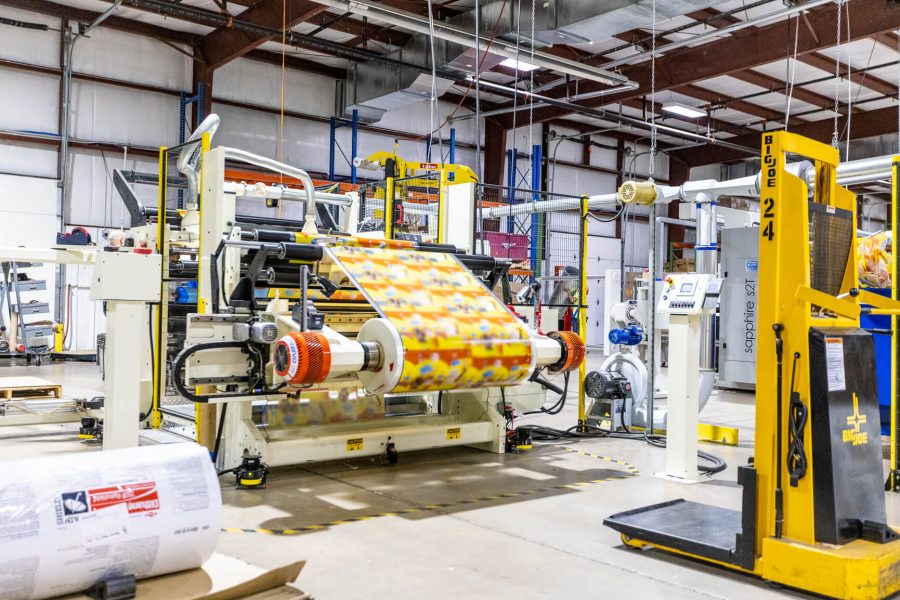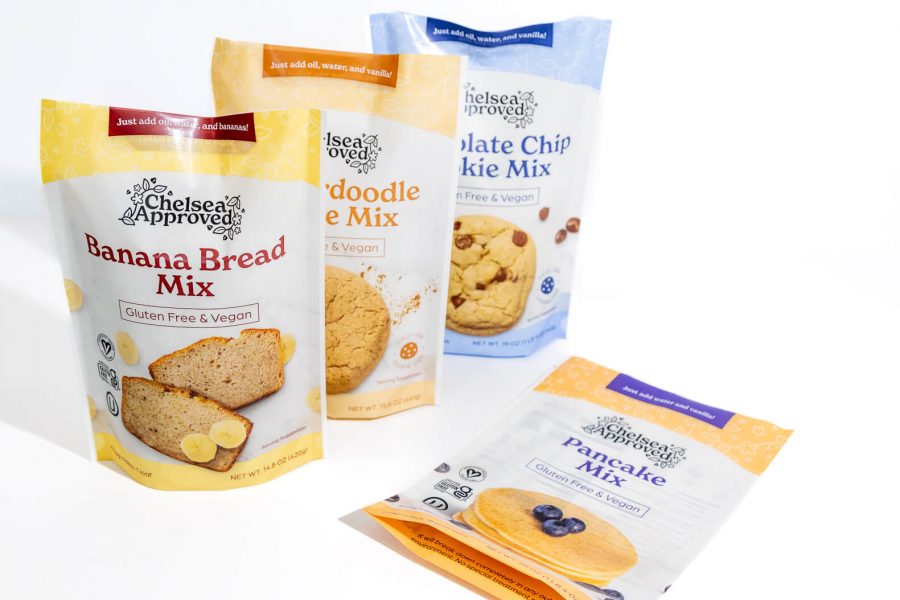Benefits of Flexible Packaging
Flexible packaging offers numerous benefits compared to rigid packaging.
Sustainability
One of the primary advantages of flexible packaging is its reduced environmental impact. Flexible materials like stand-up pouches, films, and bags use lighter weight raw materials and take up less space in landfills compared to rigid packaging.
Additionally, flexible packaging has a smaller carbon footprint due to the manufacturing and transportation process requiring less energy and a reduction of fossil fuel consumption.
Versatility
Unlike rigid packaging, flexible packaging can be manufactured in various sizes, shapes, and designs to meet the unique needs of different food products.
For example, stand-up pouches are ideal for products like dried fruit and granola while flat pouches are better suited for chips and cookies.
Protection
Flexible packaging provides an excellent barrier against moisture, oxygen, and light, which can deteriorate food quality over time. By protecting food products from these elements that can cause spoilage, flexible packaging aids in the preservation of food freshness, hence leading to less food waste going into the landfill and offsetting the creation of harmful methane gas. The use of modified atmosphere packaging technology also helps to extend the shelf life of perishable food items.


